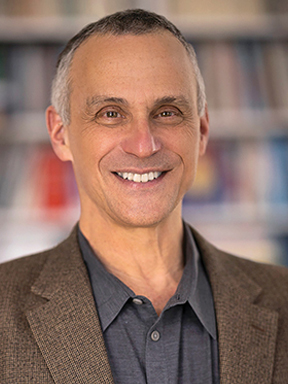From the President: Pluralism Over Sectarianism
Like many universities in the United States, at Wesleyan preparing students for lives of engaged citizenship is a core part of our mission. This was true back in the 1960s, when students worked with faculty to assist those disenfranchised because of their identities or economic class. More recently, we’ve offered mini grants to undergrads who want to travel to work on competitive races. We have students traveling to Michigan and Alaska, Georgia and Wisconsin. Of course, some are volunteering for campaigns right here in Connecticut. From providing registration and mail-in voting information for those who need it, to driving people to the polls on election day, students engaged in political organizing can make a big difference in local, state, and national races. And they learn while doing so.
Impediments to voter registration, however, discourage many from exercising their basic rights to participate in U.S. elections, and that’s one of the reasons programs to register young people are so important. Only about half of Americans in their first decade of voting eligibility are likely to vote, though that number is closer to two-thirds for those enrolled in college. At Wesleyan, we should exceed that number this year, but voting is only the endpoint of civic engagement not its entirety. By participating in the electoral process in the run-up to the election, our students are involved in the exchange of ideas, in learning how to listen to those with opinions different from their own, and in learning the art of organizing people for a common purpose.
These skills honed in the public sphere will serve our students well on campus and beyond the University. At the very least, they model meaningful opportunities for sustainable conversations by showing that strong differences don’t have to end in violence. Wesleyan has programs that equip students to be more successful in this regard. The Office for Equity and Inclusion, Academic and Student Affairs, along with the Allbritton Center for the Study of Public Life, have all initiated educational activities to help students, faculty, and staff build a greater capacity to have dialogues across difference. Faculty Director of the Center for the Study of Public Life and Associate Professor of Sociology Robyn Autry has been working with colleagues here, at Harvard, and at the Institute for Citizens and Scholars, to integrate intellectual diversity and open conversation across the curriculum. Executive Director and Rob Rosenthal Distinguished Professor of Civic Engagement Khalilah Brown-Dean is building on the Allbritton Center’s history of community partnerships to help students learn to listen more deeply, respect differences of opinion, and find ways to take positive actions even when disagreements are not fully resolved. With the help of the Arthur Vining Davis Foundations and the Templeton Religious Trust, our chaplains use a similar model as they build interfaith literacy across religious groups that might at first glance seem to have irreconcilable world views.
This fall we can all learn to be better students and better citizens by collaborating with others, being open to experimentation, and calling for inclusion rather than segregation—and participating in the electoral process.
President Roth
At the heart of all these efforts is a commitment to pluralism, not sectarianism—a commitment to learn from those whose views are different from one’s own. Building on that engagement, we can foster conversations that take us beyond the borders of the campus, leaving our comfort zones to engage with our fellow citizens and not just with like-minded undergrads and professors. In the coming months, we will be announcing grants to support this kind of work—both at the curricular and co-curricular levels. Going beyond a defense of freedom of expression, we can integrate pluralism into a great many aspects of the education we offer. We can model a pragmatic liberal education that comes from cultivating connection, not canceling perceived enemies.
I’ve argued that being a student has come to be associated with practicing freedom. Education can prepare people for the best modes of political engagement, and true political engagement can prepare people for the highest goals of education. To strengthen our democracy and the educational institutions that depend on it, we must learn to practice freedom better. This fall we can all learn to be better students and better citizens by collaborating with others, being open to experimentation, and calling for inclusion rather than segregation—and participating in the electoral process. As for those loud voices in the political sphere who are afraid of these experiments, who want to retreat to silos of like-mindedness, we can set an example of how to learn from people whose views are unlike our own. This has long been, after all, the Wesleyan way.

